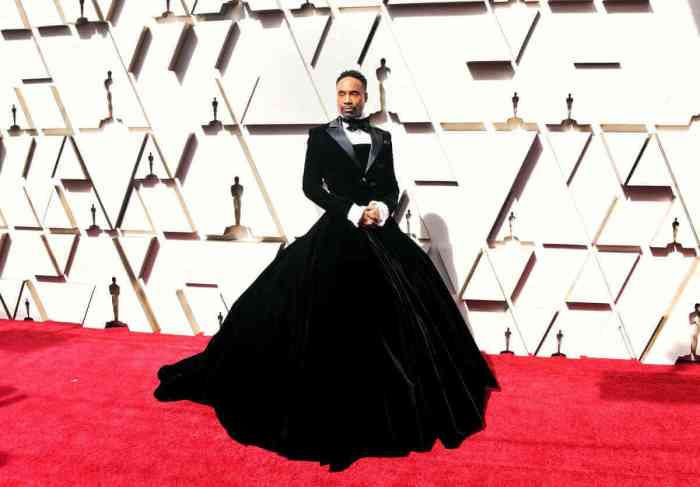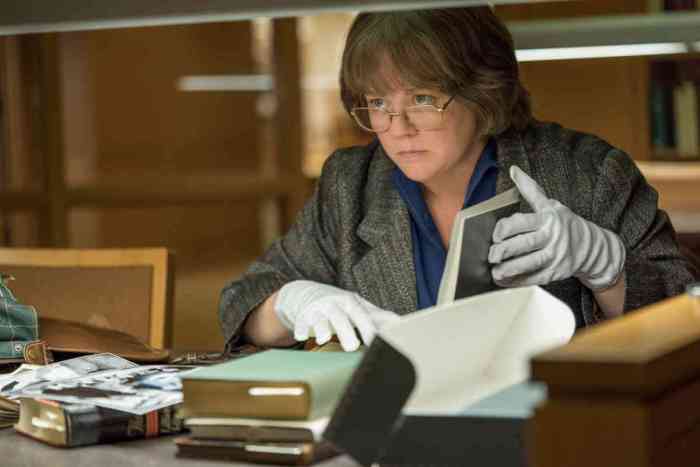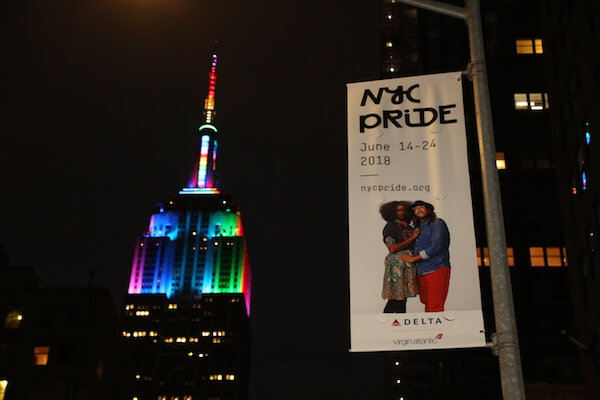Armie Hammer (background) and Timothée Chalamet in Luca Guadagnino’s “Call Me By Your Name,” adapted from André Aciman’s novel. | SONY PICTURES CLASSICS
Queer actors this year had highs, with Lebanese-American actor Haaz Sleiman coming out as “a total bottom” in a Facebook video he posted in August, and lows, especially Kevin Spacey coming out as gay when he apologized to Anthony Rapp, who said Spacey sexually abused him years ago when Rapp was 14.
Queer film had highs and lows, too. 2017 was the year “Moonlight,” a film about African-American gay sexuality, won the Oscar for Best Picture. Never mind the envelope snafu at the ceremony that led to “La La Land” being erroneously awarded at first.
After 2016’s “Moonlight” captured Best Film Oscar, diverse and popular offerings follow in wake
Onscreen, LGBTQ cinema had more to celebrate than regret. Here is a rundown of highlights — and some lowlights — from this year’s queer film offerings
Best Gay Male Film “Call Me By Your Name,” out filmmaker Luca Guadagnino’s lush adaptation of André Aciman’s novel, was an ecstatic cinematic experience. The relationship between a 17-year-old (Timothée Chalamet) and a 24-year-old intern (Armie Hammer) was heartfelt and heartbreaking.
Runner-up: “The Wound” was gay director John Trengove’s astonishing film set among the Xhosa culture in South Africa’s Eastern Cape featuring a love triangle that develops during a male initiation ritual. Out singer Nakhane Touré makes an unforgettable screen debut.
Best Lesbian Films “Battle of the Sexes” and “Atomic Blonde” tie for being the most entertaining among films featuring lesbian characters. In “Battle,” Billie Jean King (Emma Stone) embraces her self-worth as she falls for Marilyn Barnett (Andrea Riseborough) off the court while also defeating male chauvinist Bobby Riggs (Steve Carell) on the court. In the guilty pleasure “Atomic Blonde,” the title character (Charlize Theron) stopped kicking ass long enough to bed Delphine Lasalle (Sofia Boutella), a possible femme fatale.
Charlize Theron and Sofia Boutella in David Leitch’s “Atomic Blonde.” | FOCUS FEATURES
Runner-up: “Below Her Mouth” was softheaded, soft-core lesbian erotica, but it was SAF, and Erika Linder made an indelible impression.
Best Documentary
“I Am Not Your Negro,” Raoul Peck’s incisive non-fiction film uses James Baldwin’s writing and interviews about race to put white privilege in its proper place.
James Baldwin in Raoul Peck’s documentary “I Am Not Your Negro.” | MAGNOLIA PICTURES
Runner-up: “No Dress Code Required” eloquently depicts the fight a Mexican couple waged to get married. As these unlikely activists struggle to demand the equality they deserve, it is impossible not to cry happy tears at their wedding.
Most Erotic Coupling: Ooh la la! The opening 20 minutes of “Paris 5:59: Théo and Hugo,” set in a sex club, features explicit sexual activity — and that was just the set-up for what becomes a lovely gay romance between the title characters.
Most Seductive Male
In “God’s Own Country,” Gheorghe (Alec Secareanu), a Romanian laborer who helps out at Johnny’s (Josh O’Connor) family farm in England’s Yorkshire, the immigrant seduces just by licking Johnny’s injured palm and looking up at him with bedroom eyes.
Alec Secareanu and Josh O’Connor in Francis Lee’s “God’s Own Country.” | ORION PICTURES/ SAMUEL GOLDWYN FILMS
Runner-up: In “4 Days in France,” Mathieu Chevé has only a brief scene in what is a long road movie, but his tryst with the protagonist is very diverting.
Best Male Nudity In “The Ornithologist,” Jesus (Xelo Cagiao) and Fernando (Paul Hamy) go skinny-dipping and have sex, and it’s a toss-up as to which man is hotter. You just want to take off your clothes, jump through the screen, and join them… that is, until things take a violent turn.
Best Gay Teens on Screen Out writer/ director John Butler’s charming “Handsome Devil” had two mismatched gay roommates not fall in love with each other. The film was even more fabulous because of that.
Best Latin American Film
“Nobody’s Watching” is Julia Solomonoff’s achingly sad and human drama about a gay Argentine actor adrift in New York. Guillermo Pfening, in a captivating performance, communicated the pain and despair of a heartbroken immigrant in America.
Runner-up: In “Hazlo Como Hombre,” about a gay man who comes out to his best friends, the homophobe in the mix gets his comeuppance as he learns lessons of tolerance and acceptance in broad comic scenes. But, it’s the skewering of Mexican machismo is what makes this south of the border box office success so amusing.
Best Biopic Who would have thought a film about the teen years of cannibalistic serial killer Jeffrey Dahmer would walk such a fine line between satire and horror, but “My Friend Dahmer” is fantastic in how it does. And it succeeds because it manages to avoid the well-nigh impossible temptation to be judgmental. As Dahmer, Disney star Ross Lynch is mesmerizing.
Runner-up: “Tom of Finland,” Dome Karukoski’s classy, enthralling biopic about the post-war gay pornographic illustrator, is more conventional that than one might expect given its subject, but this approach works in the film’s favor. Viewers get to know and understand the man behind the homoerotic images.
Best Film Directed by a Lesbian “Mudbound,” Dee Rees’ powerful, moving drama about two families — one African American, one white — in 1940s Mississippi, is a stirring lesson about race and family.
Runner-up: “Professor Marston and the Wonder Women,” Angela Robinson’s origin story about the man who created the famed comic heroine, is intriguing in its depiction of the lead characters’ polyamorous, S&M-tinged relationship.
Worst LGBTQ Film
“The Assignment” took the offensive idea of forced gender reassignment surgery and, not surprisingly, made it into an unpleasant film.
Most suspect LGBTQ Film
The enjoyment of Eliza Hittman’s fantastic drama “Beach Rats” was sharply undercut when Gay City News reported that it was clearly based on the real-life killing of gay African American Michael Sandy in Brooklyn — but that the filmmaker chose to whitewash the story. Unfortunately, Hittman was not inclined to address the underlying ethical issues involved in that choice.
Best Re-Release
“Maurice,” James Ivory’s elegant 1987 gay romantic drama, received a 4K restoration in the same year that his newest queer film, “Call Me By Your Name,” for which he was screenwriter, came out. Ivory has blazed an impressive gay legacy.





































